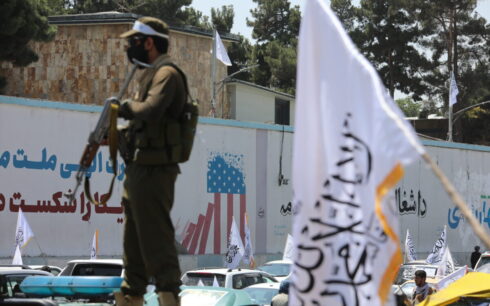The Afghanistan Journalists Center in a statement on Monday expressed deep concern over the severe restrictions imposed by the Taliban’s new media law, warning that the decision places extensive limitations on the press and journalists.
In a statement released on Monday, the journalists’ advocacy group condemned the new restrictions, describing them as a continuation of the Taliban’s ongoing crackdown on free media in Afghanistan.
The statement highlighted that these restrictions contradict the country’s existing media law and are in direct conflict with its principles.
The Afghanistan Journalists Center pointed out that while the Taliban have accepted the national media law, they are selectively enforcing only certain aspects of it.
The organization also warned of the negative impact these restrictions will have on the media landscape, urging the Taliban to reconsider their policies toward the press.
The new law grants increased authority to the Taliban’s morality police, known as “Motevas,” to interfere in media operations. According to Article 17, Section 3 of the law, these enforcers are tasked with preventing the publication of content that includes images of living beings.
Article 17 of the Taliban’s law on “Promotion of Virtue and Prevention of Vice” includes the following provisions:
- Broadcasting content that does not contradict Sharia and religious principles.
- Broadcasting content that does not insult or demean Muslims.
- Prohibiting the broadcasting of content featuring images of living beings.
Additionally, Article 19 of the law imposes bans on playing music in public transportation, transporting women without hijabs, allowing interaction between unrelated men and women, and transporting women without a male guardian.
The article stipulates:
- Prohibition of playing music.
- Ban on the use and trafficking of drugs.
- Prohibition of transporting women without hijabs.
- Prevention of interaction between unrelated men and women.
- Obligation for drivers and passengers to perform prayers at prescribed times.
Moreover, Article 22 of the new law imposes further bans, including the use of tapes, radios, and similar devices for producing or viewing images and videos of living beings on computers, phones, and other devices.
The law also prohibits allowing women’s voices and music to be heard outside homes or at gatherings.
The new regulations also ban shaving or trimming beards and cutting hair in styles deemed contrary to Islamic principles, although the law does not specify what constitutes an “Islamic” hairstyle.





